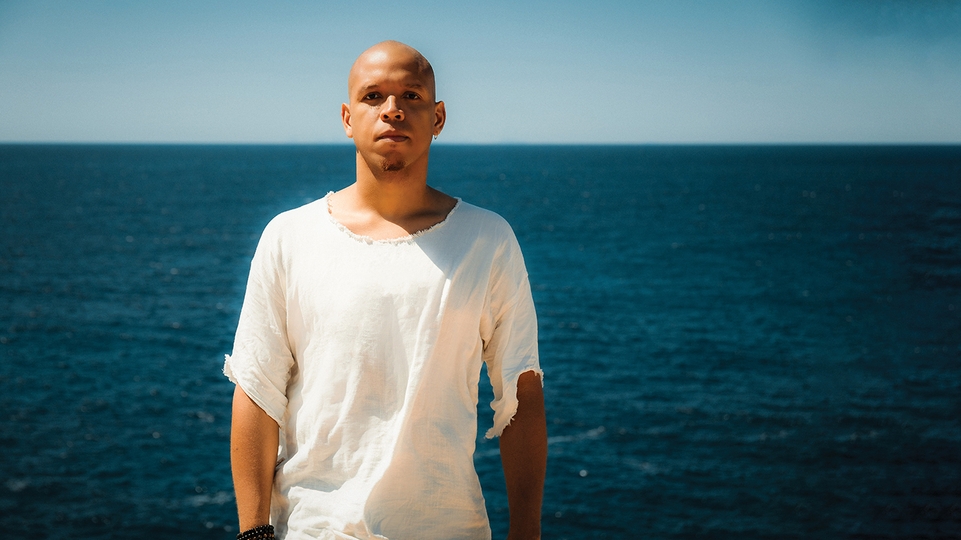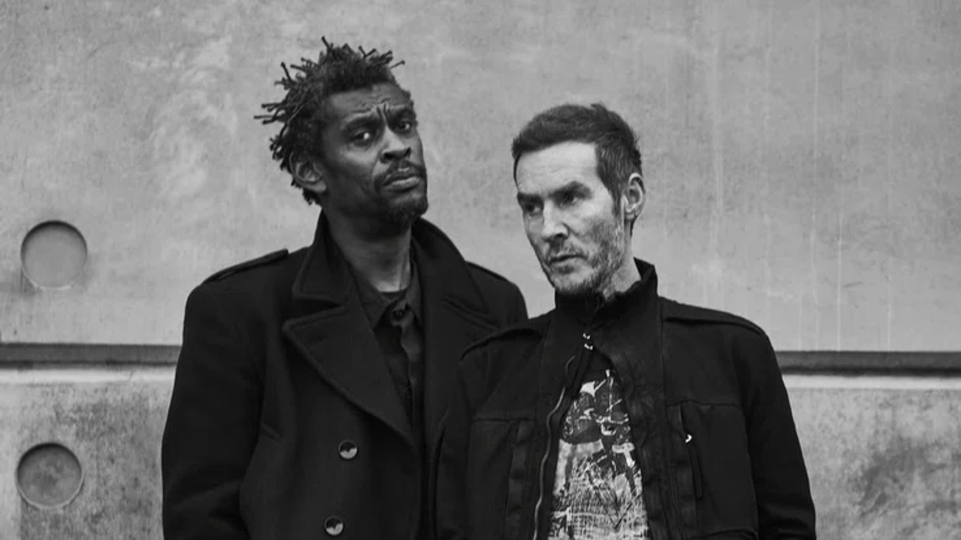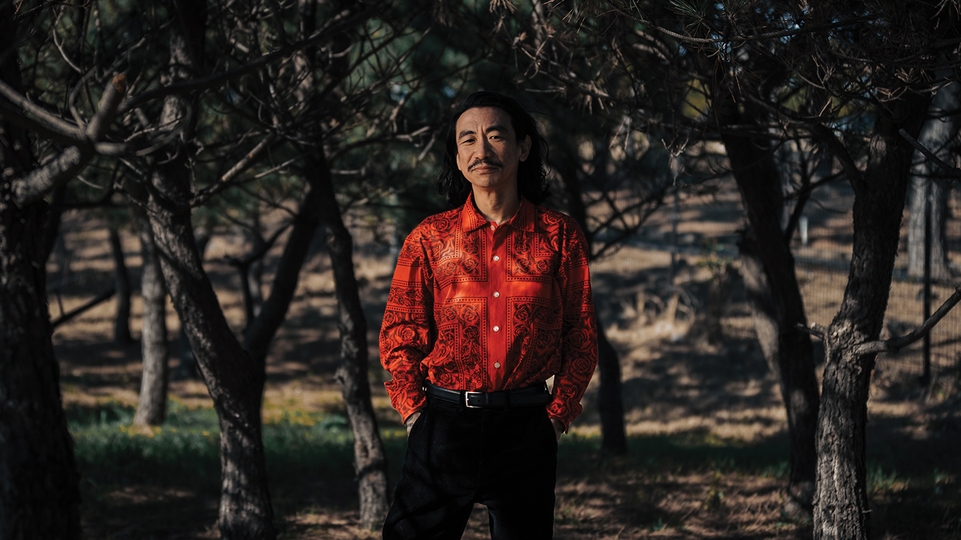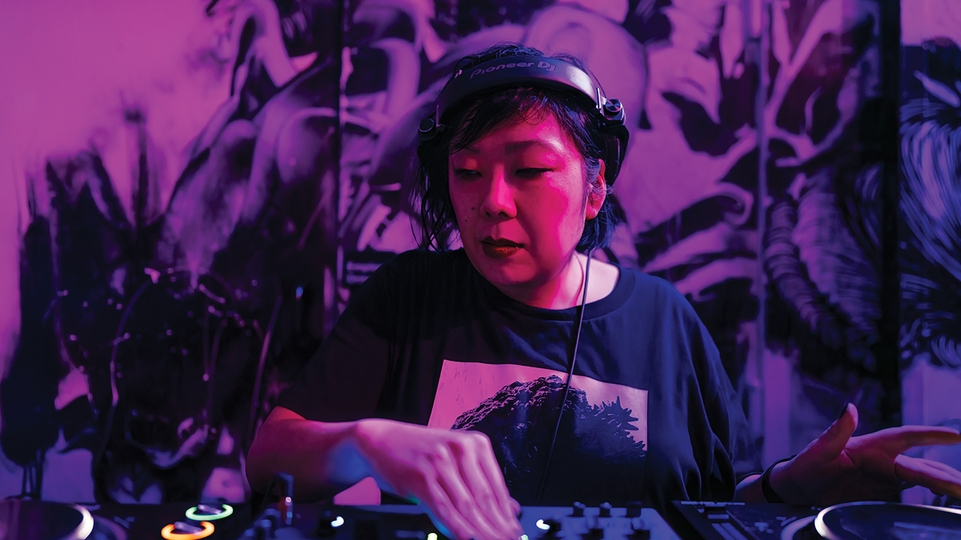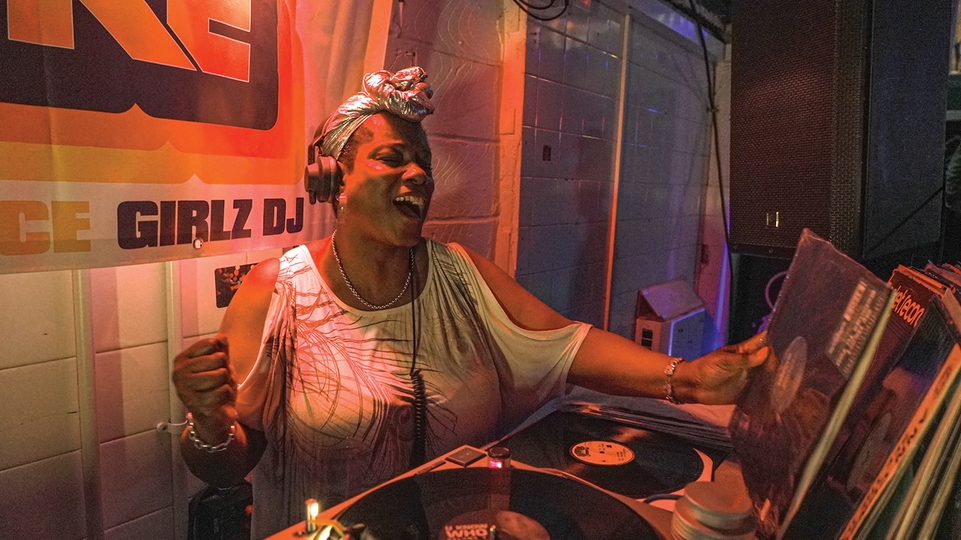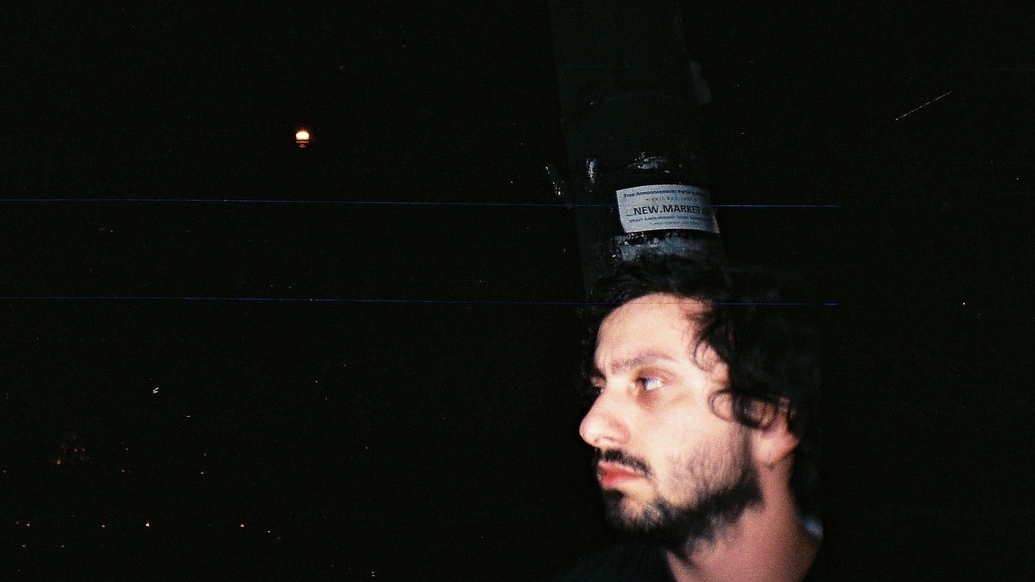
On Cue: Gacha Bakradze
Tbilisi, Georgia's Gacha Bakradze has spent a decade refining his signature sound, weaving emotive electronic melodies and guitar lines through skittering techno and IDM beats. He's also co-founder of the renowned Left Bank club and community space, which celebrates its second official anniversary next month with the launch of a new label and compilation. Here, alongside his club-tuned, three-deck On Cue mix, he speaks to Eoin Murray about how family life and running a venue has changed his relationship with music, his background in bands, and his community-driven vision for Left Bank
Gacha Bakradze’s music is a microcosm of his life right now: “a bit of chaos, a bit of sweetness, a bit of everything.” It’s a state the Georgian producer and DJ has found balance in, after a decade spent restlessly refining his sonic signature on disparate labels including the introspective Apollo Records, the club-tuned Fever AM and Cin Cin, and the progressive trance and house hub Anjunadeep. His recent third album for Barcelona’s Lapsus label, ‘Pancakes’, finds him on firmer ground than ever. Across 12 tracks, rhythmic waves of IDM, electro and techno crash against pillars of bass, before collapsing into rippling ambient foam and melodic electronica. His sound feels newly assured, beautifully rendered for the space between your headphones and the dancefloor. It begs the question: what changed? Turns out, he just had to slow down.
Produced over the course of two years, ‘Pancakes’ is the culmination of a transitional period for Bakradze. Between the release of his luminous Lapsus debut ‘Word Color’ in 2018, through its striking follow up ‘Obscure Languages’ in 2021, and now, the responsibilities of parenthood and co-running the popular Tbilisi club and community space Left Bank have gradually taken precedence over his previously-strict studio routine. Where pursuing a musician’s life was once his sole raison d'etre, this shift in focus removed some of that pressure, allowing him to create more freely, patiently and, most importantly, for himself.
“To take that time to just live and do something that is not music has helped me make music,” he explains, dialling in from the concrete-walled office of Left Bank one evening in September, sporting a black A Perfect Circle t-shirt, perched in front of a framed portrait of a fox. “I had the experience of making music every day for 10 years and really, really pushing it, so it's been really great to just take some time to reflect, to go back to a project and listen to it again with fresh ears and a new mindset. It’s like it doesn't belong to you anymore; you hear it as if it's someone else’s. It’s great to have this kind of feedback on your own music.”
A healthy relationship with Lapsus, and an intentionally reduced calendar of DJ gigs since the pandemic has only furthered this creative freedom, he says. It removed any impetus to produce tracks aimed exclusively at the club. “Subconsciously, when you're DJing a lot and making music at the same time, you start to think about the groove and the dancefloor,” he says. “This kind of influences you. Living outside of that world really opened me up as a musician, and I started to think about other sources. Now, I just make it without any context. Context comes during the process.”
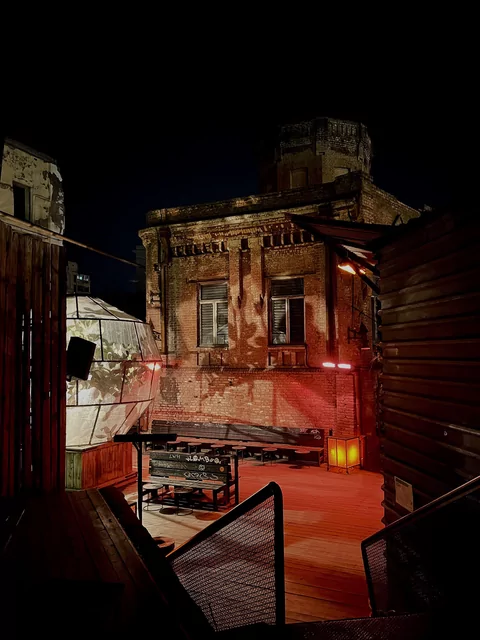
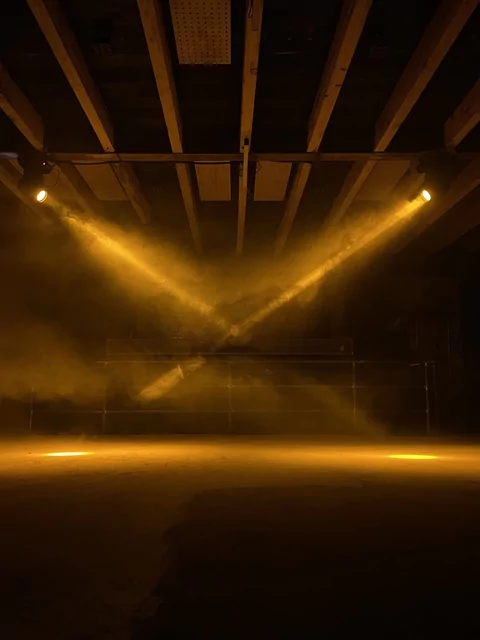
Meanwhile, real life remains busier than ever. When we speak, Bakradze’s come straight from a meeting downstairs with the rest of the Left Bank team, with whom plans for entrance renovations and end-of-year programming are in full swing. Later, he’ll go home to spend time with his family. His son, Johannes, who’s just turned six, started school a few days ago and, on top of everything else, Bakradze’s been dealing with all the nerves and emotions that come with that.
Johannes, who’s been learning piano and drums, joins Bakradze in the studio from time to time. He’s even credited on ‘Pancakes’, after some curious synth knob noodling became the main melody on the gorgeous ‘Morning Chatter’. The track invokes the more tender moments in Aphex Twin’s catalogue; its choral chimes, featherlight keys and skittering beat are held together with growling sub bass. Bakradze lights up when describing these moments; they’re what he’s living for these days. It’s a naive energy that he wants to reawaken in his own creative process too. “It’s great to be like, ‘what’s this!? what’s that!?’, and to have that excitement. I also think mistakes can be really beautiful. That’s what I’m trying to do – to forget things during the process and keep that freshness.”
Music has always been a family affair for Bakradze. Growing up in the small port city of Batumi in the post-civil war ‘90s, electricity was scarce at home, so he and his siblings would often spend childhood evenings just listening to their mother play piano. Later, when he was around 9 or 10, his cousin taught him to play guitar, starting him off with the melody from The Godfather theme.
He played his first gig at 13, in a grunge band covering Nirvana and Alice In Chains songs. Access to new music was limited at the time, so Bakradze and his friends would share burnt CDs and ripped cassettes of whatever they could get their hands on individually, building a communal collection. “If there was no music in my childhood, I would have ended up pretty lost,” he says. “Growing up in a small city in a third world country, music was the only thing that kept me going, in a way... It kind of saved my life.”
He discovered electronic music through The Prodigy and, at 16, was introduced to Propellerhead’s Reason software by a friend. He started making beats, and incorporated them into the post-punk tracks he was writing with his band in Tbilisi, where he’d moved some years before with his family. Eventually, he went solo, sharing tracks on Soundcloud under the Gacha mononym. They made a splash, and Apollo signed him for his debut single proper, ‘Remember’, in 2011.
More music followed, but even as his cuts of guitar-led ambient, post-dubstep and soft-focus techno reached global audiences, visa restrictions made travelling outside of Georgia to play gigs or work on new projects difficult. Bakradze couldn’t help but feel disconnected from the electronic music world he was ostensibly a part of. “It’s quite depressing when you have these opportunities but you can’t take them because of your nationality,” he says.
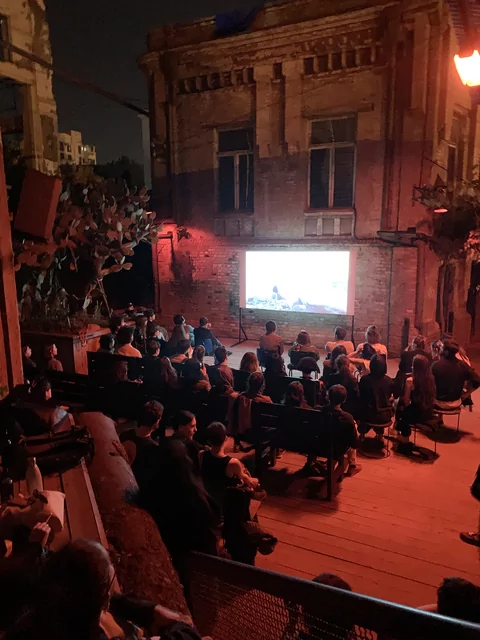
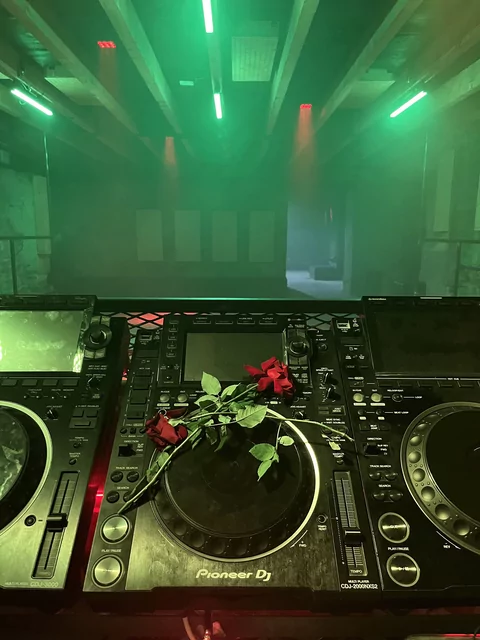
In 2017, visa liberalisation made things a little easier, and Bakradaze played a handful of shows around Europe over the next two years, while continuing to release increasingly adroit music on a variety of imprints. At the same time, plans for a new multi-purpose venue were bubbling at home – a space where people could listen to music, catch a film, check out an exhibition, take part in a workshop, or simply hang out. Bakradze and a friend had had these wheels in motion since 2016, but it wasn’t until late 2020 that Left Bank officially launched as a lockdown compliant outdoor space on the site of a Soviet era electrical substation on Tbilisi’s west side.
Since, Left Bank’s swift evolution into a full-blown venue has been impressive; it’s earned international renown thanks to its impeccable programming and community-driven ethos. “The idea was to create a safe space for people who wanted to express themselves in a way they wouldn’t outside, and to connect people from different backgrounds,” Bakradaze says. It’s an operation built on friendship, with a core crew of 12 people running things democratically alongside a wider team of 40. “The main thing is the love of music that connected all of us,” he says. “That’s the unifying factor.”
Most of the team are musicians, sound technicians or DJs in some capacity. Some are on the club’s roster of residents, which includes local artists such as Esi, Ash Scholem, Routes Not Roots, Sportsmanship, Wesley Wise and Dani, alongside international acts including Bruce, Danielle, Pariah and Ogazón. Nurturing local talent – from cutting edge DJs and experimental opera troupes to post-punk and metal bands – while building relationships with touring artists from around the world, has enabled Left Bank to establish itself firmly on the electronic underground map.
Tbilisi’s club scene has repeatedly proven itself to be a force for positive social progress in Georgia. Alongside venues such as Bassiani and KHIDI, Left Bank has helped raise awareness at home and abroad around issues relating to regressive government policies, LGBTQ+ rights, and the war in Ukraine. It’s important, says Bakradze, to provide spaces like this, where young, progressive Georgians can come together, united against conservative values. “Young people trust clubs, because they’re the only places that aren’t pro-government, or pro-religion,” says Bakradze. “Nightclubs have always been voices of justice – places where you can feel like everyone is respected. There are many places here that create that same atmosphere, where people go not just to party, but to stand together.”
Left Bank will celebrate its second (third, if we’re getting technical) anniversary in October with the launch of a brand new label, alongside a 13-track compilation called ‘Stop What You’re Doing’. Gathering tracks from friends and affiliates in Tbilisi and beyond including HVL, James Bangura, eoin DJ, Maja, Pavel Milyakov, Sam Goku and more, Bakradaze says it “perfectly aligns with Left Bank's commitment to a constant process of moving forward.”
“While the label will remain distinct from the club in terms of music, fostering a sense of community and collaborating with like-minded artists who share our values and vision is essential to us,” he says. “Therefore, I thought it would be very special to launch our label on our birthday."
As for Bakradze himself? He’s working on new music at his own pace, slowly unravelling the next chapter of his musical evolution. At the moment, that involves modular synths and black metal-esque guitars, with a little added help coming from Johannes of course. “I just want to keep doing what I really like doing,” he says. “And to have enough strength to just keep pushing. I want to have the opportunity to explore music as much as I want to, and to be in good health with my family and my friends. With the club, I really hope that is just the beginning. Much more exciting things are about to happen in the future.”
Listen to Gacha Bakradze's thumping On Cue mix, recorded at Left Bank using three CDJs and a Xone96 mixer, below.

